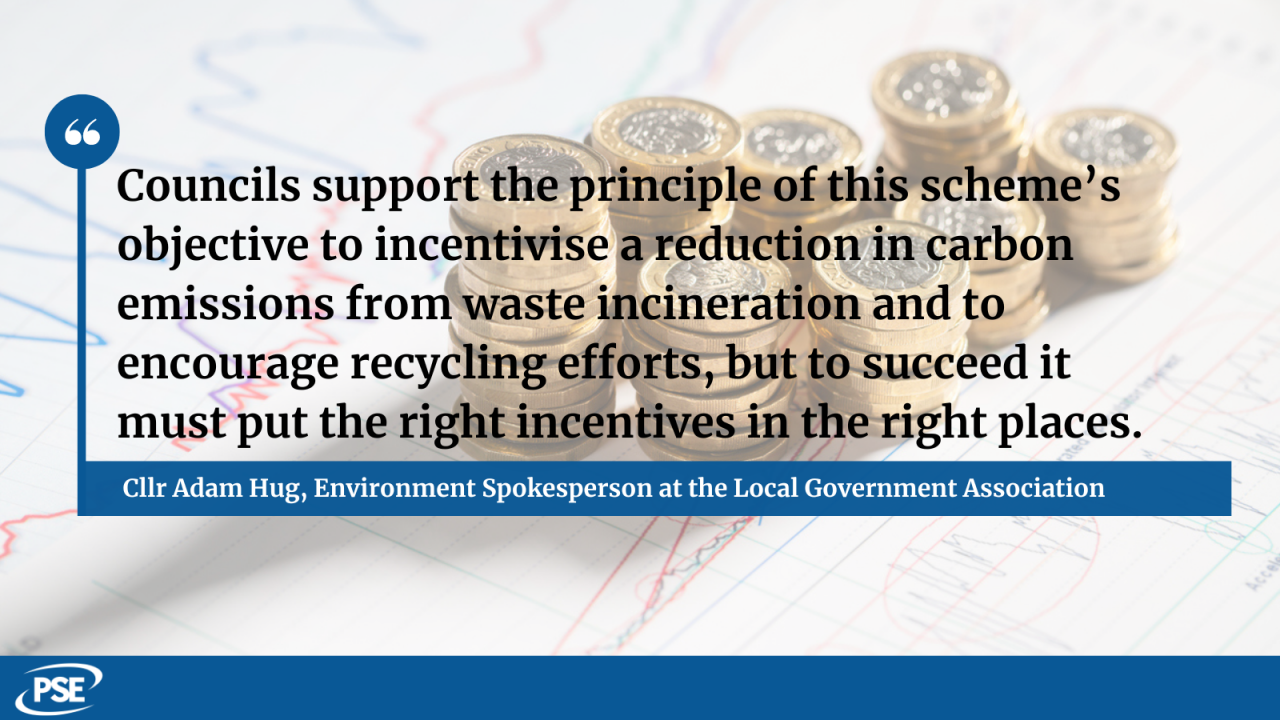A new tax on the carbon emitted from burning waste could see councils saddled with costs of more than £1bn, analysis from the Local Government Association, County Councils Network and District Councils’ Network has warned today.
The Emissions Trading Scheme is a system that puts market prices on carbon emissions – while it currently applies in the aviation sector, the previous government proposed expanding it to encompass the incineration of waste from 2028.
As part of a response to a consultation on the scheme, local government leaders are urging central government to ensure the costs of the expansion are passed onto the industries creating fossil-based materials, which can be found in:
- Packaging
- Textiles
- Electricals
- Furniture
Multi-billion-pound losses
New research from the LGA, CCN and DCN suggests that the proposals could cost councils £747m in 2028, which could jump to £1.1bn by 2036 – the cumulative cost of this period could be as high as £6.5bn. Leaders have also said that volatile markets could foster additional risks for councils that need to balance their budgets.
The move of placing the cost on industry is grounded in a belief that this would incentivise them to reduce the level of fossil-based materials created; it would also raise funds to reinvest in other things, such as carbon capture and storage solutions, for example.
While there are plans to put the costs of packaging waste onto producers, the LGA’s analysis found that, of the entire residual waste stream, packaging only makes up around a fifth (19%). There are no plans to extend this to the lion’s share of waste sent for incineration.

LGA polling in collaboration with YouGov revealed that the public are 12 times more likely to think the costs of reducing packaging should fall on the companies producing it (48%) rather than councils (4%).
Unaffordable
The LGA’s environment spokesperson, Cllr Adam Hug, said: “Councils support the principle of this scheme’s objective to incentivise a reduction in carbon emissions from waste incineration and to encourage recycling efforts, but to succeed it must put the right incentives in the right places.
“Current proposals risk councils and local taxpayers facing enormous costs, which simultaneously risks the scheme failing to meet its objectives while exposing councils to significant additional financial risk.”
He urged the government to review the proposals as well as increase support for council recycling efforts.
“Taxing councils for the waste we have little option but to incinerate would be a bombshell for the delicately-balanced funding of local waste services – including district councils’ successful efforts to increase recycling,” added the DCN’s environment spokesperson, Cllr Andy Graham.
“District councils spend over 40 per cent more on waste collection than we did four years ago as we battle to retain staff and implement stringent national guidance on how we collect waste. We cannot afford to be hit by an incineration tax.”
Cllr Richard Clewer, infrastructure and planning spokesperson for the CCN, concluded: “Councils support the principle of reducing fossil-based materials, but this proposed carbon tax is in the wrong place: we should employ the polluter pays principle instead.
“It must be down to the producers of fossil-based materials to pay these costs to incentivise them to use greener methods, rather than local authorities who have no choice but to incinerate this waste long after it is produced and purchased.
“As this research shows, these proposals will result in significant extra costs for local authorities. If these costs are to be borne by councils, they will have to paid for by council tax or by reducing highly-valued services so we are calling on the new government to rethink these proposals.”
Image credit: iStock



















